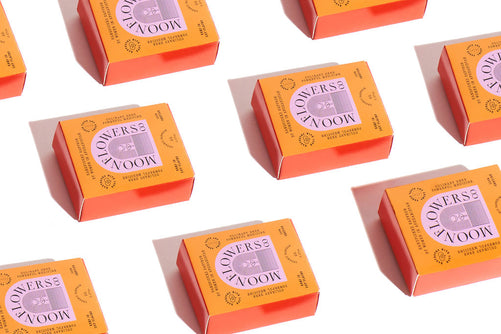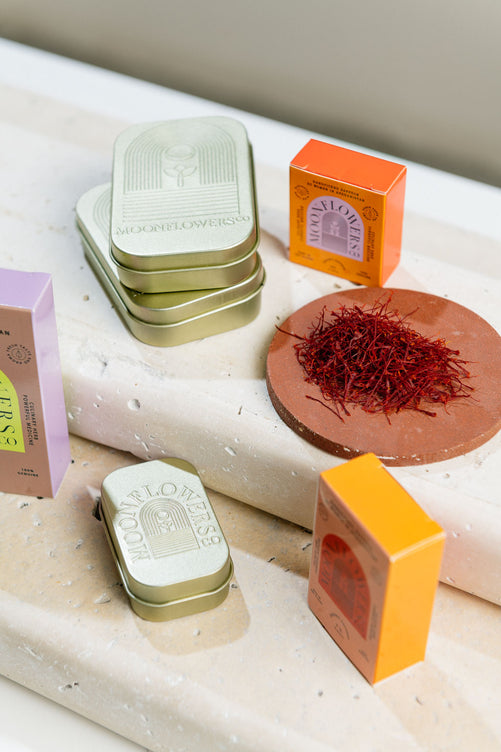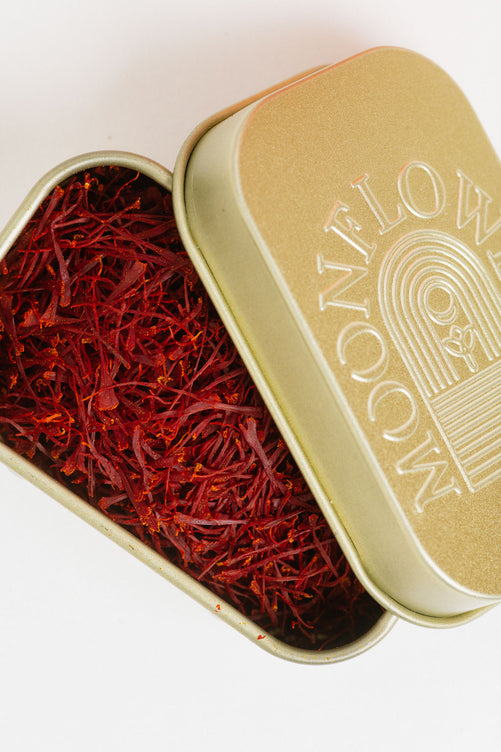journal
Beauty Benefits of Saffron

HOW IS SAFFRON USED FOR BEAUTY?
In ancient traditions in South East Asia and Central Asia, saffron is used for cosmetic purposes and is still being used in modern day skin care. The active compounds in saffron are anti-inflammatory, work against hyperpigmentation, UV radiation and is full of anti-oxidants. There are various ways of implementing saffron into your skincare routine. You may add it to your moisturizer, make a mask or buy skin care at beauty supply stores or apothecaries that contain saffron as an active ingredient.
The history of saffron usage for cosmetic purposes range from the traditional Persian medicine to treat erysipelas (infection of the outer layer of the skin) to traditional Greek medicine that can refresh the skin and is used to relieve the liver of the domination of bile and to treat acne, skin diseases and wounds. Cleopatra used it in her beauty products as well. It is also believed to prevent the skin from aging because of the antioxidants in saffron. In ancient Hindu practices women used saffron to make the bindi, the yellow dot on the forehead. Besides the antioxidants in saffron, it has many other benefits for your skin listed below.
BENEFITS OF SAFFRON FOR YOUR SKIN
Anti-UV agent
UV rays from the sun are known to be causing long-term skin damage such as wrinkles, pigmentation, sun burn and aging of skin. Excessive exposure to UV rays may also increase the risk of skin cancer. Saffron is known to have anti-solar effect that may protect your skin from harmful UV rays. Studies have shown that saffron lotion is even better than sunscreen or homosalate (an organic compound used in some sunscreens). The protective effects of saffron lotion make it the perfect product to use as a natural UV absorbing agent. Saffron is high in anti-oxidants and this helps protect your skin cells and may therefore prevent cancer.
Redness or dark spots
Studies have shown that saffron may reduce pigment in the skin called melanin. In ancient traditions saffron was used as a lightening agent in skin care. Formulations that contained the saffron extract have caused significant depigmentation on skin. What causes redness or dark spots on the skin? The most common causes are pigmentation disorders, rashes, infections, skin cancers, and other medical conditions. Antioxidant activity is mainly exhibited by monoterpenoids, crocin, quercetin, kaempferol, and by other phenolic components of the crocus sativus (saffron flower). These active compounds causes to reduce skin melanin.
Anti-aging effect and skin diseases
In traditional herbal cosmetics uses, saffron can be soaked with a few basil leaves to treat blemishes such as acne. A mixture of soaked saffron strands and virgin coconut oil, or olive oil, and a bit of raw milk is an effective way to exfoliate and improve blood circulation face skin. Saffron is known to reduce a skin condition called erythema, characterized by inflammation, redness or rash. Saffron is rich in antioxidants expected to inhibit the expression of markers of inflammation such as tumor necrosis factor (TNF) and interleukin. An application of the formulation containing 3% C. sativus extract to human skin may be useful in the management of melanoma. Similar effects have been reported by Moshiri et al. who found that clinical trials on the anti-pruritic and skin-promoting effects on saffron's effects on skin care both confirmed that saffron was more effective than placebo.
Perfumery
The scent from saffron is derived from the component safranal, that is the odoriferous compound of saffron. In ancient Greece, saffron was a royal dye and was used as a perfume in salons, courts, theaters and bathrooms. Additionally, during the Parthian Dynasty, they used saffron among the ingredients of a royal scent, which included a refreshing oil facial for kings and ritual leaders. Today, we find this woody, sweet note and harmonious in the composition of different perfumes both feminine and masculine, with an original and exotic potential. The all-natural perfume brand Feuguia has a perfume based on the scent of saffron, Azafran.

CAN YOU USE SAFFRON DAILY ON YOUR FACE?
Saffron can be used daily on your face to hydrate your skin, reduce skin inflammation, irritation and regenerate your skin cells. The best way to incorporate saffron in your daily skincare routine is to soak a pinch of saffron threads in half a cup of raw milk, coconut oil or mixed with sandalwood. You can apply this concoction on your face. The saffron in this natural at home made face mask will give your skin a natural glow.
Other recipes for an at home face mask that includes saffron is to mix the saffron threads with sandalwood and rose water. Use a mortar and pestle to grind your saffron and sandalwood, add rose water to turn it into a thick paste. Apply the mixture on your face and leave it on for 15 minutes, rinse your face with lukewarm water. This mark will give your skin a natural glow.
Or you can begin by trying a simple and effective saffron honey mask
DOES SAFFRON IMPROVE MY COMPLEXION?
Saffron in skin care is known to lighten your skin complexion and to give it a natural glow. The antioxidants and anti-inflammatory properties in saffron improve skin conditions such as acne. Incorporating saffron in your daily skin care routine will improve your complexion over time.

CAN SAFFRON BRIGHTEN MY SKIN?
Studies have shown that saffron has skin brightening effects. The active compounds in saffron reduce skin melanin production, which in turn brightens the complexion of your skin.








